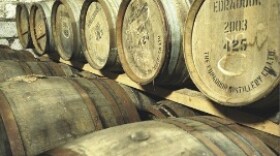Click here for the complete tour itinerary
Find your family tartan www.tartans.scotland.net or www.scottishtartans.org
Download free Tartan desktop wallpaper
In many countries today, the pattern of interlocking stripes called a tartan is often mistakenly known as "plaid." Plaid actually comes from the Gaelic word for a blanket, and is specifically used in the context of Highland dress to refer to a large length of material. The original kilt was known as the "belted plaid" and consisted of a length of cloth (basically a large blanket) that was gathered and belted at the waist. The plaids were most often made from a tartan cloth, and so the confusion between the two terms is understandable.
Tartan refers to the pattern of interlocking stripes, running in both the warp and weft in the cloth (horizontal and vertical), or any representation of such a woven design in other media (printed, painted, or otherwise rendered). Typically today one thinks of "clan tartans" -- that is, tartan designs that represent certain Scottish clans and families. While this is typical, it was not always so.
Tartan has an ancient history. The earliest known tartan in Scotland can be dated to the third or fourth century AD. In other parts of the world, tartan cloth has been found dating to approximately 3000 BC. Virtually everywhere there was woven cloth, people created tartan designs. Yet only in Scotland have they been given such cultural significance. Why? (More)
(Information taken from Scottish Tartans Museum, Franklin, NC, USA)
Book your seat by October 8, 2013 and save $250 per person.
Contact Laura at Holiday Travel Vacations at 906-228-6355 or 800-562-9767.











